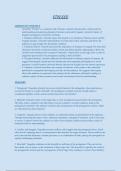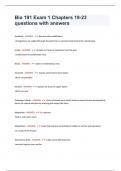College aantekeningen
Othello Revision
- Vak
- Instelling
Here are my AS and A Level revision notes for the Aspects of Tragedy exam. They include notes on the Aspects of Tragedy, Aristotle's Theory of Tragedy, Quotes, Character Analysis, Themes and Critical Quotes for debate. Useful for memorising quotes and the way they relate to each character and theme...
[Meer zien]










